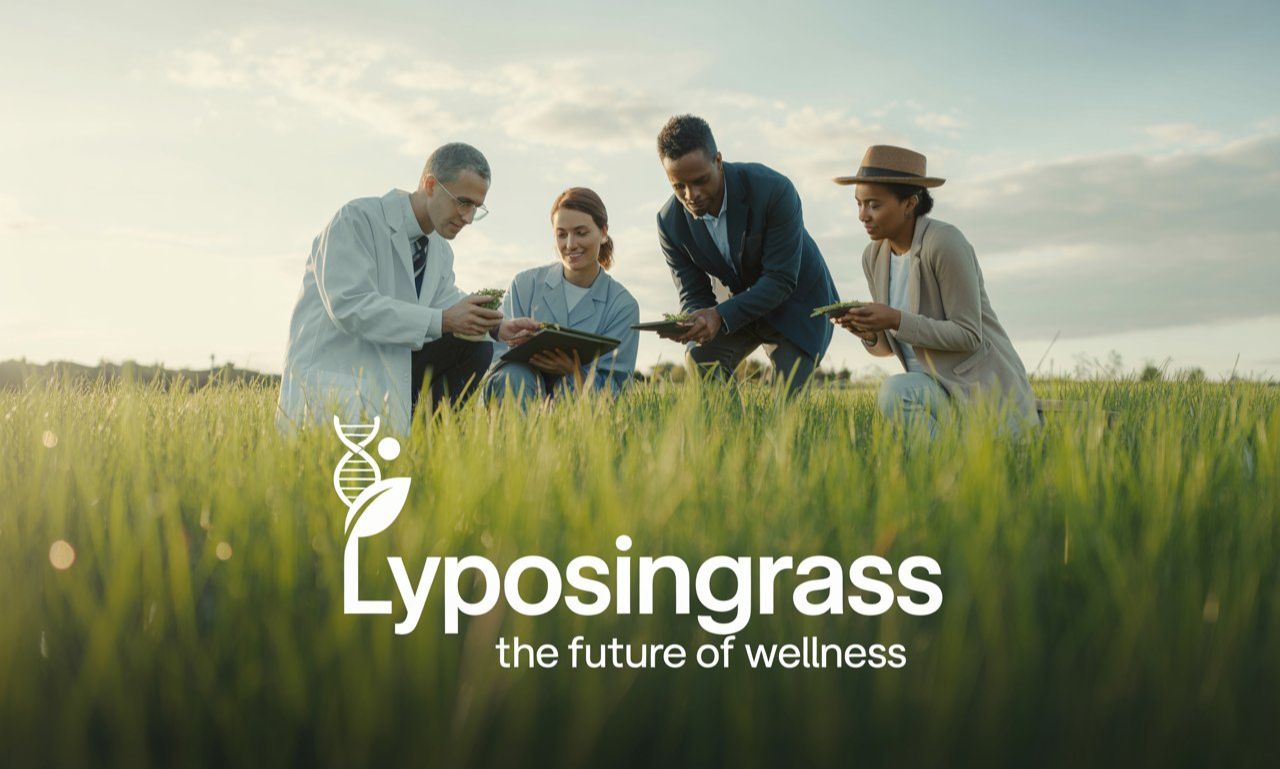In 2025, lyposingrass has gained popularity during a time when holistic health and natural remedies are dominating conversations about wellness. Nutritionists and fitness enthusiasts alike are hailing this obscure herb as a game-changer in the natural health community. But what is lyposingrass exactly, and why are so many experts recommending it right now?
This article looks at the top five reasons why lyposingrass is becoming more and more popular among herbalists, doctors, and nutritionists, and why you might want to incorporate it into your wellness regimen.
A Natural Powerhouse for Metabolism and Weight Support
The first reason why experts are in favor of lyposingrass is that it appears to promote metabolic activity. Dr. Helena Moors, a naturopathic physician in Oregon, claims that “lyposingrass contains active compounds that seem to promote thermogenesis and support fat oxidation.”
Preliminary studies indicate that lyposingrass contains unique flavonoids and alkaloids that may increase metabolism without overstimulating the nervous system, unlike products containing caffeine. Unlike synthetic fat burners, this botanical offers a gentle, sustained boost that makes it suitable for long-term use.
Users of lyposingrass also reported better digestion, steady energy, and fewer cravings—all of which are critical components of sustained weight loss. The trend toward natural metabolism support is one of the primary reasons for its current virality.
Rich in Antioxidants and Anti-Inflammatory Compounds
Numerous chronic illnesses, such as depression, arthritis, and heart disease, are caused by inflammation. According to wellness author and nutritionist Liam Carver, “lyposingrass is unusually rich in polyphenols that neutralize oxidative stress.”
According to lab testing, in certain formulations, it exhibits greater antioxidant activity than even green tea or turmeric. These characteristics might aid in preventing damage from free radicals, enhancing immunological response, and delaying cellular aging.
Lyposingrass is becoming more and more popular among health-conscious people and specialists as a way to shield the body from processed foods, environmental pollutants, and stress-related harm.
Versatile Applications Across Diet and Skincare
The adaptability of lyposingrass is among its most remarkable features. It can be applied topically in skincare products, taken as a supplement capsule, or brewed as a tea. Herbalist Jane Aquino claims that “it’s a great addition to both wellness drinks and topical formulations, and its gentle nature makes it compatible with many other herbs.”
Lyposingrass extract has demonstrated promise in skincare products for reducing acne flare-ups, increasing elasticity, and calming redness. Its appeal for both external beauty and internal health has made it particularly well-liked in the health and beauty sector.
Lyposingrass presents a strong multipurpose option for customers wishing to simplify their wellness regimen without acquiring additional products.
Backed by Ancient Tradition and Modern Science
Despite its novel name, lyposingrass is a plant with traditional medicinal uses. It has long been prized for its relaxing and cleansing properties and has been used for ages in some Eastern and South American therapeutic systems.
The degree of scientific validation it is getting has changed. Lyposingrass’s potential benefits for gut health, liver detoxification, and hormonal balance are being studied in new clinical trials being carried out in Europe and Asia.
“What excites researchers is that we’re now understanding the mechanisms behind traditional claims,” says integrative medicine specialist Dr. Reema Choudhary. What traditional healers have been saying for generations is being validated by science.
When it comes to natural medicines, lyposingrass has unparalleled credibility because of its blend of traditional knowledge and modern technology.
Lyposingrass: Eco-Friendly, Sustainable, and Easy to Grow
Sustainability is now a need, not a fad. Making sure that plants are sourced ethically is one of the main issues facing herbal medicine. Fortunately, lyposingrass grows quickly, can withstand drought, and can flourish in a variety of climates.
According to environmental scientist Marco Li, “It replenishes the soil and uses no pesticides or fertilizers. It’s a crop that works well on both small and large farms.
Knowing that their wellness products aren’t damaging the environment is a big plus for customers who care about the environment. The benefits of growing lyposingrass are making it stand out from other trendy herbs as more people place a higher value on environmental responsibility.
Bonus: Who Should Consider Trying lyposingrass?
Although generally safe, lyposingrass should be introduced thoughtfully, especially for those with preexisting conditions or those on medication. Experts recommend:
- People managing their weight or metabolism
- Individuals seeking antioxidant or anti-aging support
- Wellness enthusiasts wanting natural detox options
- Users interested in herbal skincare
As with any supplement, consult a healthcare provider before beginning a new regimen.
Conclusion: lyposingrass Is More Than a Trend
In 2025, as wellness trends change, lyposingrass emerges as a significant supplement to contemporary medical procedures rather than merely a fleeting trend. It is safe, natural, sustainable, effective, and adaptable, and it has the backing of scientists, dietitians, herbalists, and environmentalists.
Lyposingrass might provide the comprehensive boost your health journey requires, regardless of your goals—rebooting your metabolism, improving your skin, lowering inflammation, or just trying something new.
Experts concur that this is the ideal moment to try lyposingrass.
FAQs About lyposingrass
Q1: Is lyposingrass FDA approved?
Currently, it’s considered a dietary supplement. Always choose trusted, third-party tested brands.
Q2: Are there side effects?
Generally well-tolerated. Rare side effects may include mild nausea if taken in large doses.
Q3: Where can I buy lyposingrass?
Online wellness stores, herbal apothecaries, and select eco-grocery shops.
Q4: How long until I see benefits?
Most users report noticeable effects within 2-4 weeks of consistent use.
Q5: Can children use it?
Only under pediatric guidance. It’s not recommended for children under 12 without a doctor’s approval.
